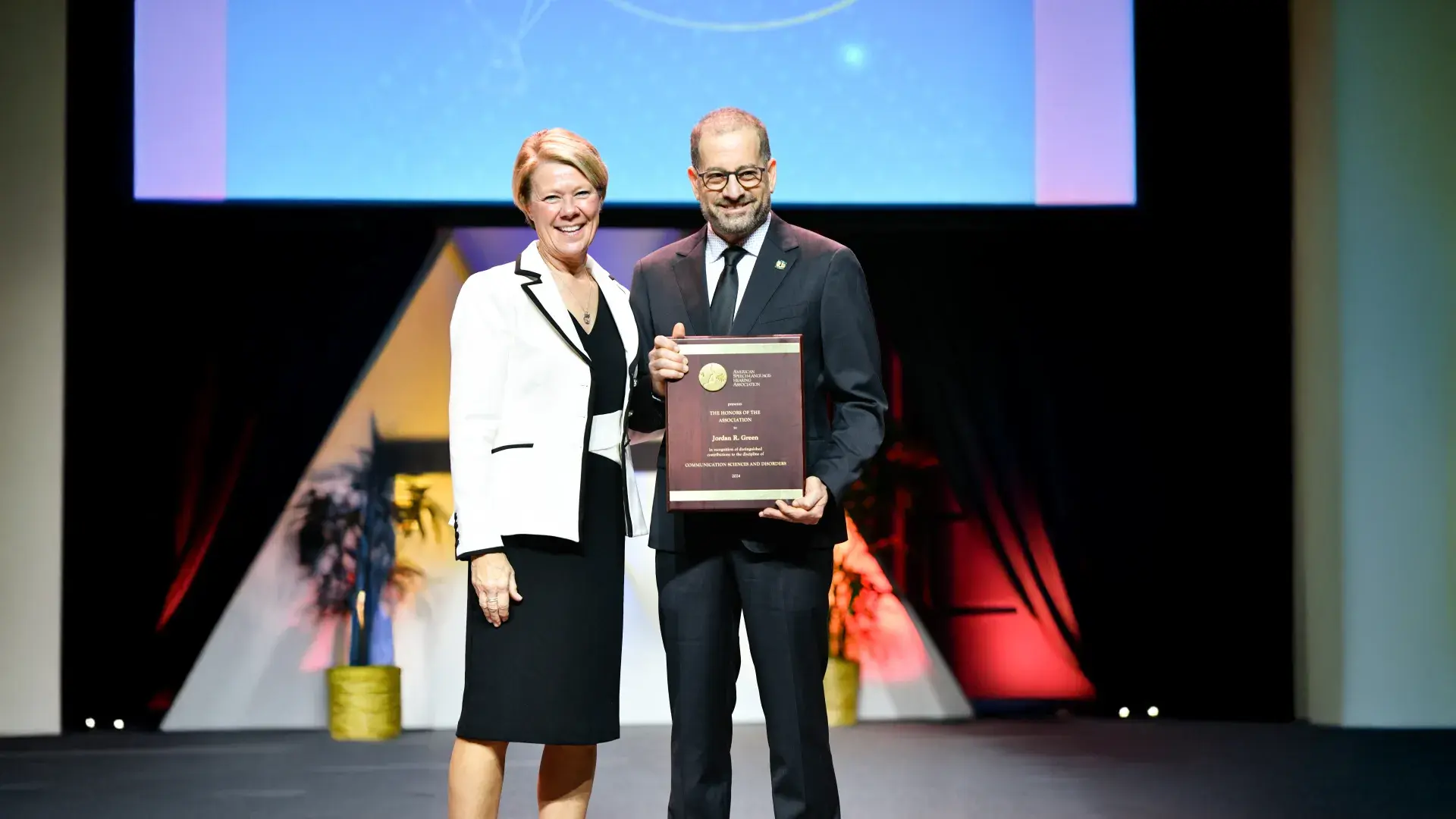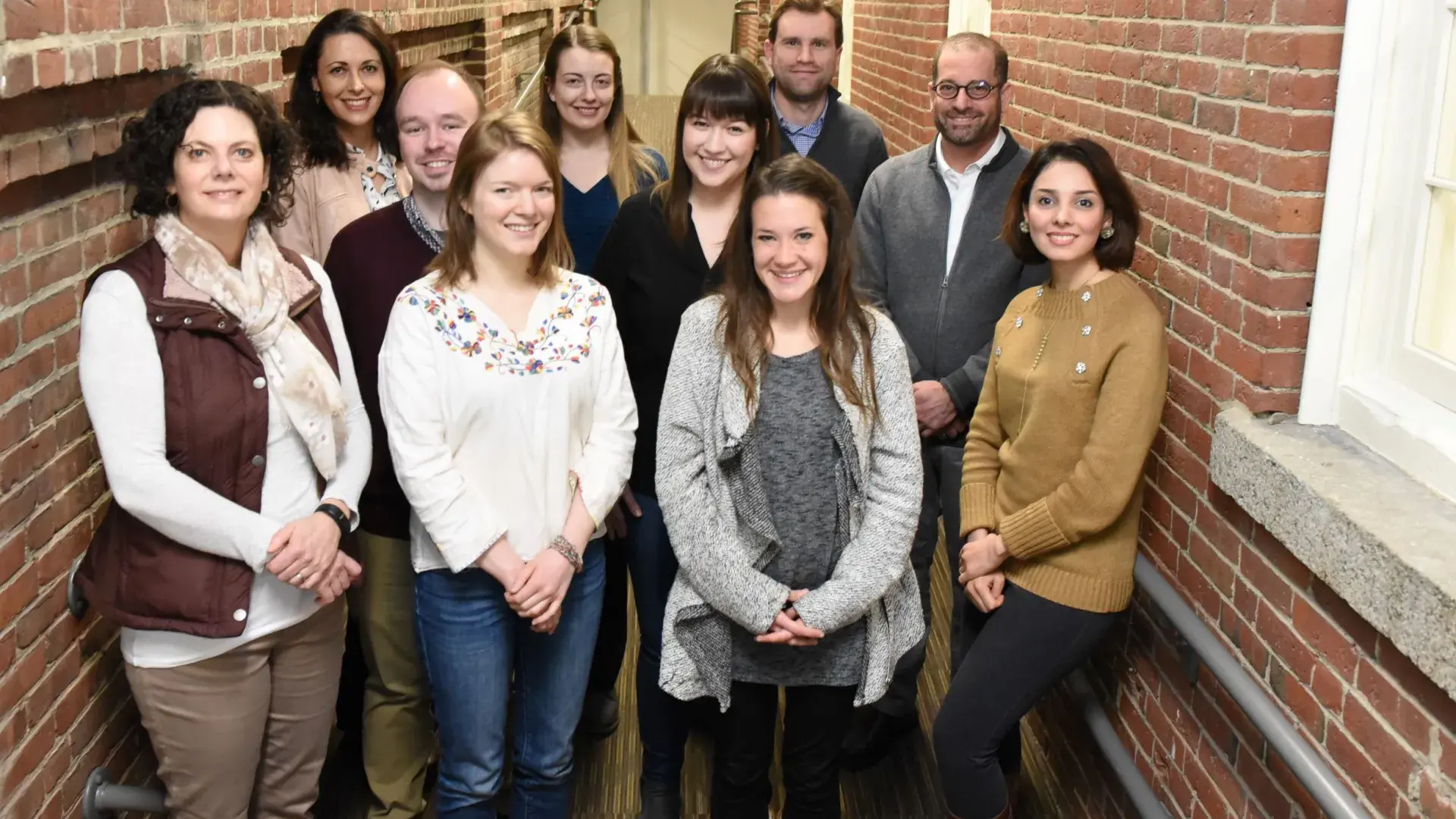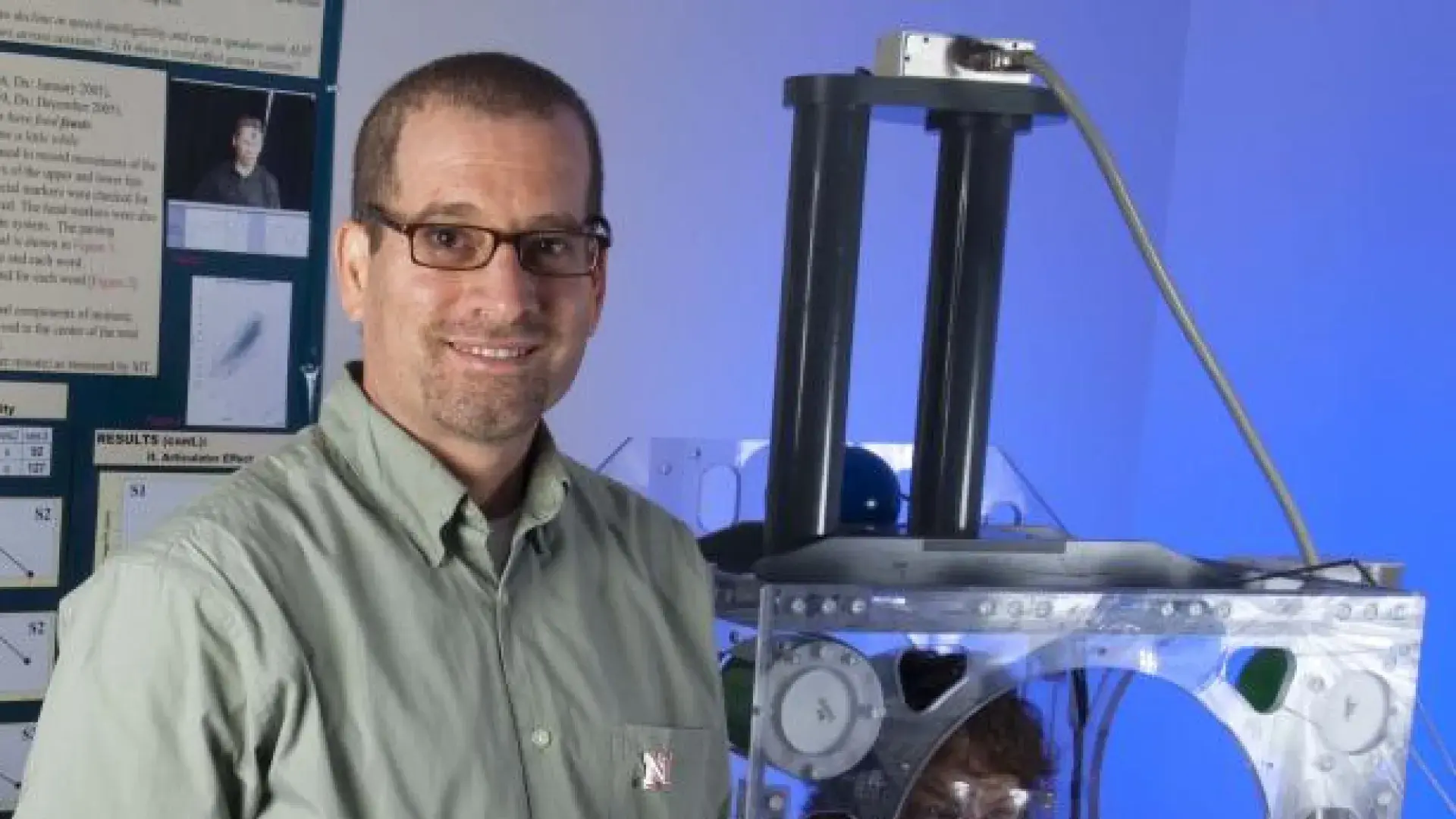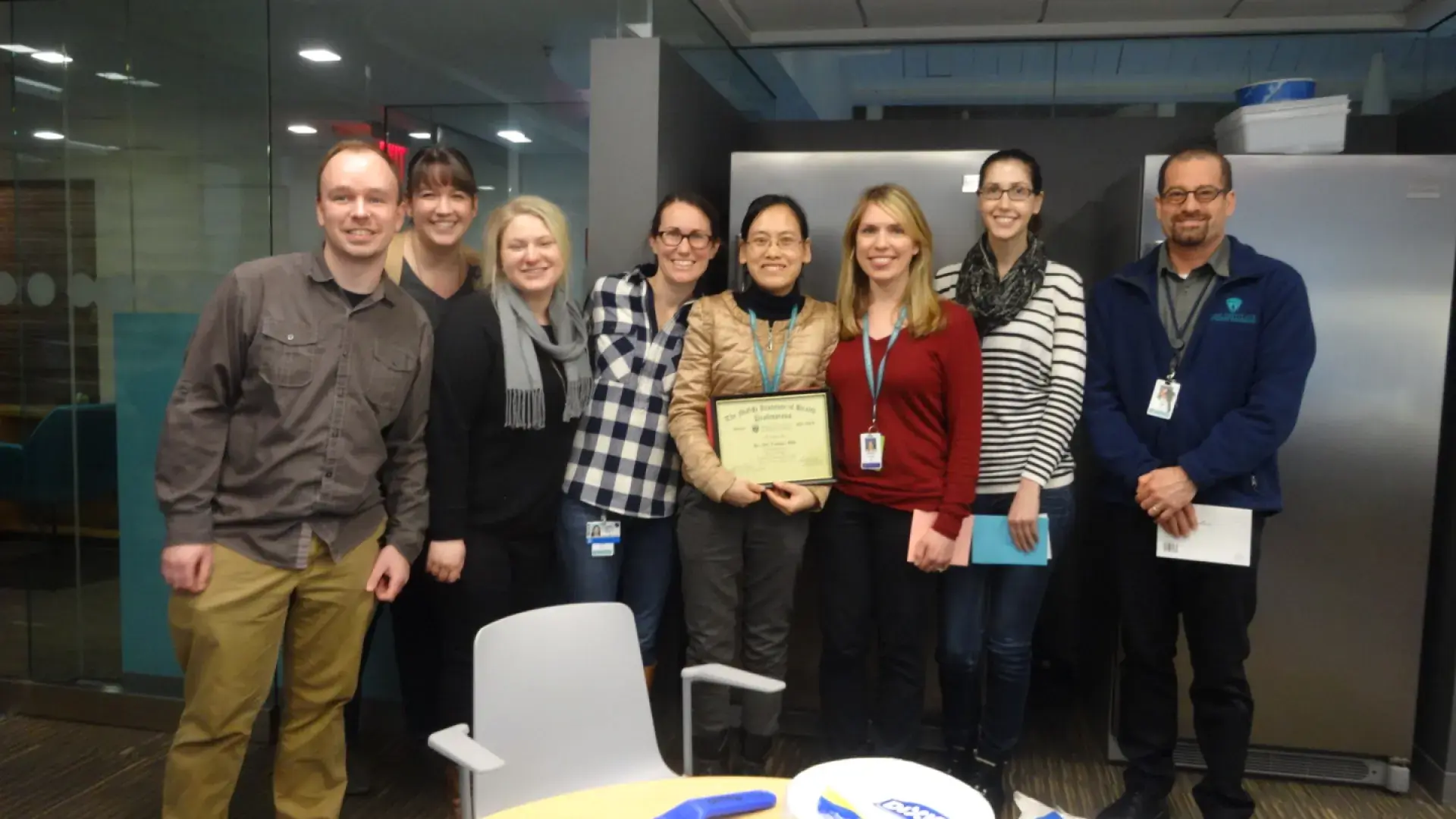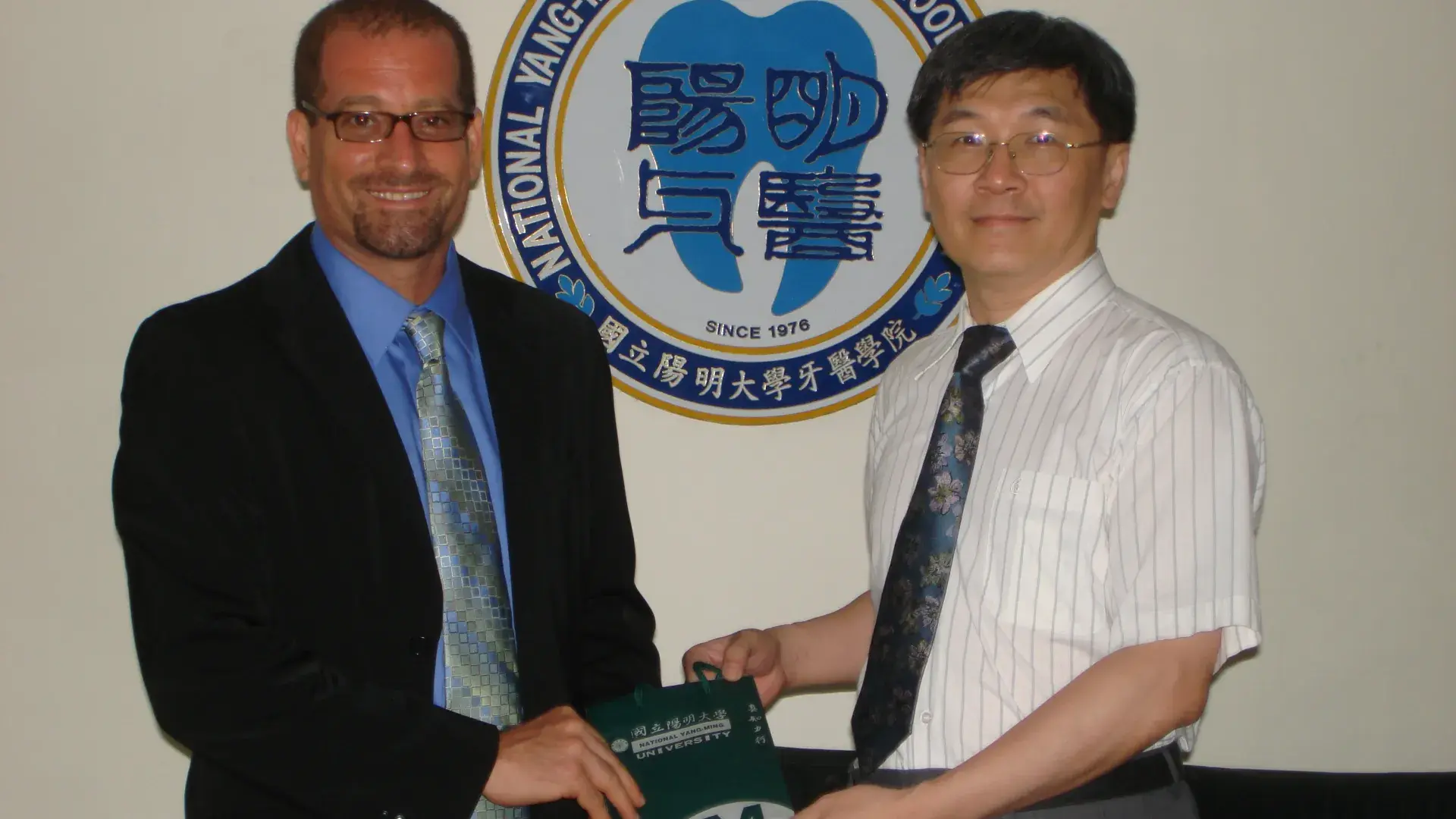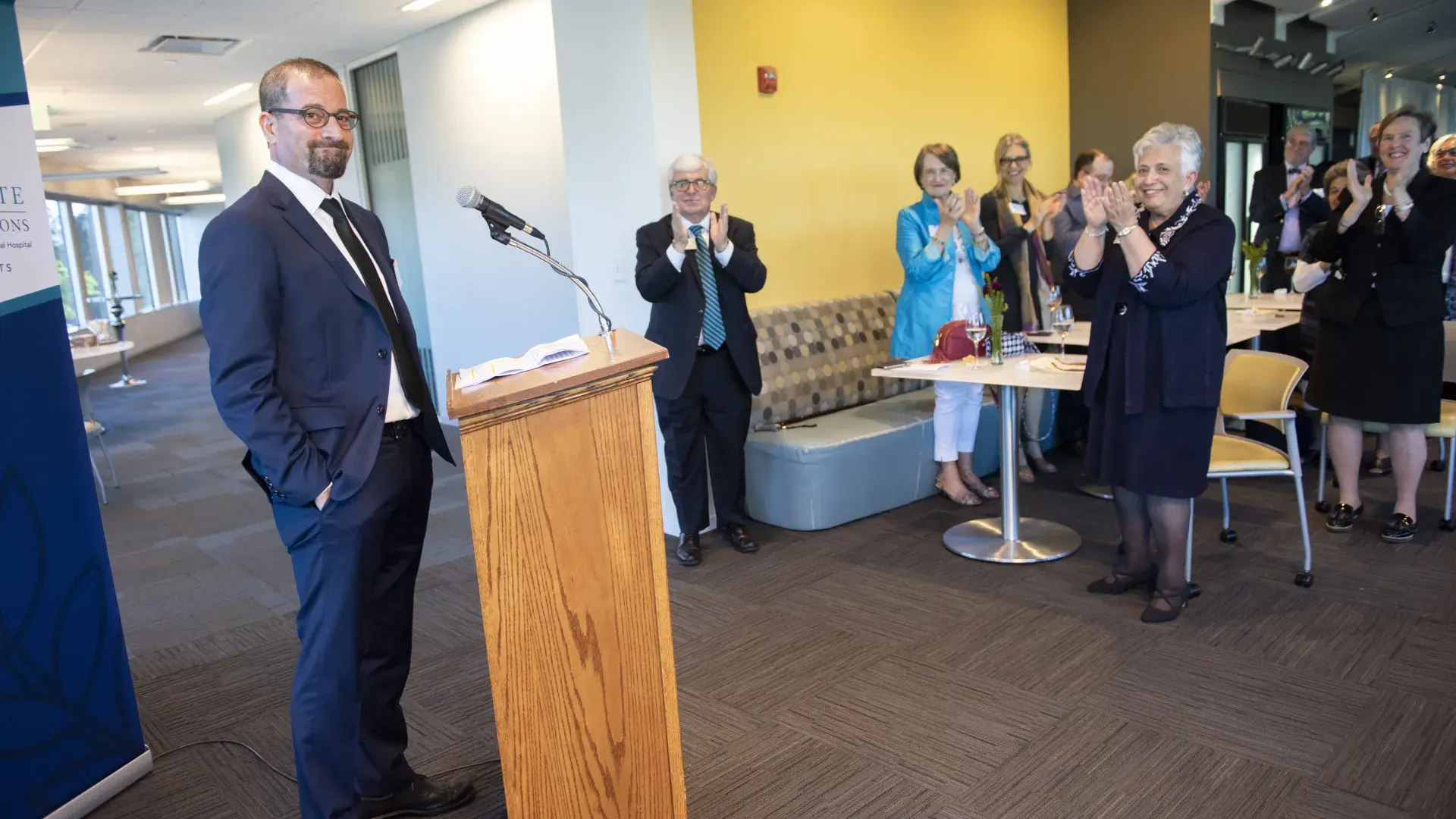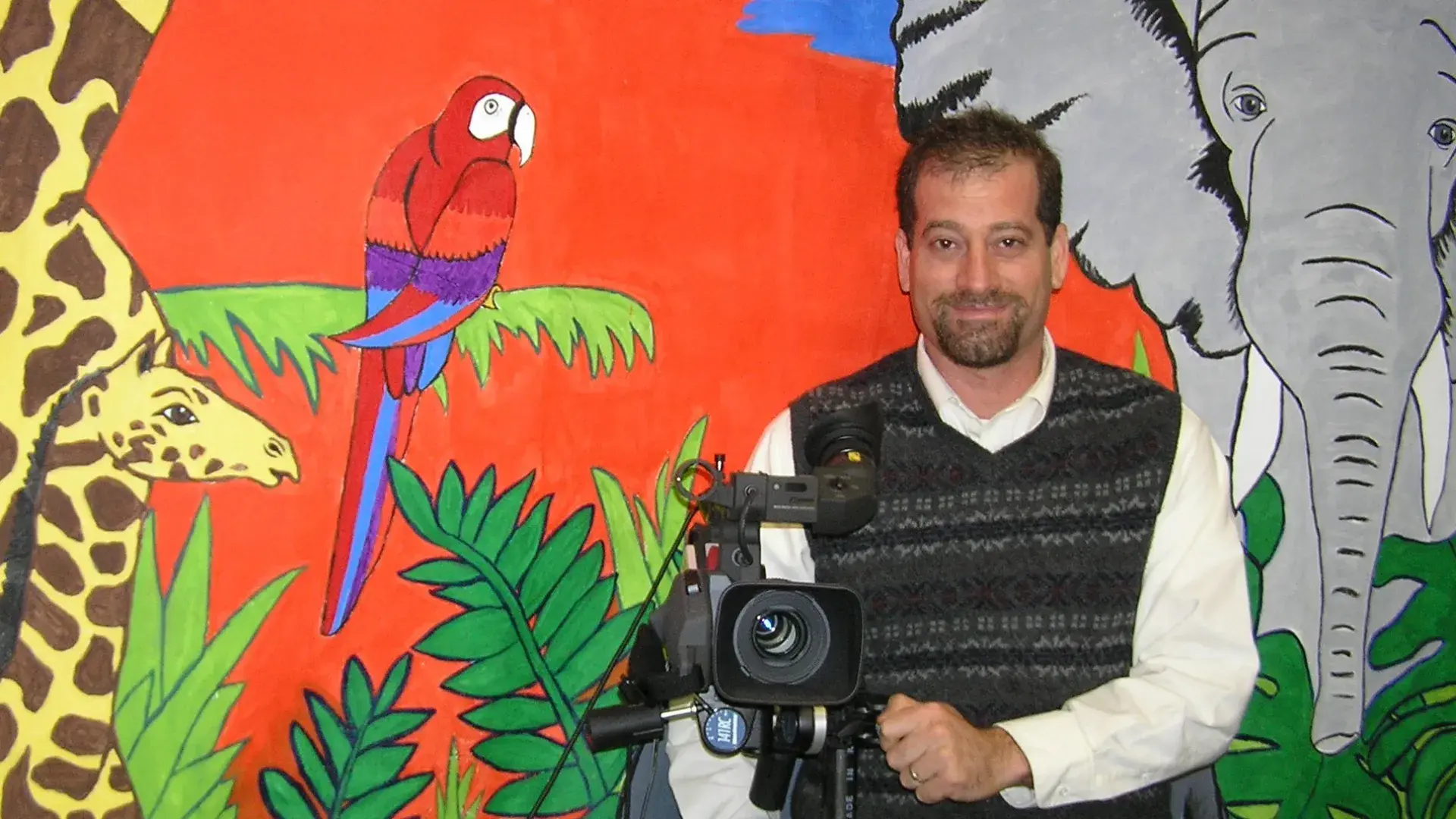
Earned “Honors of the Association” this past weekend at ASHA national convention
Jordan Green’s passion for helping people communicate might be traced to his childhood garage.
"I’ve always loved sound and signal processing —I was a musician," Green said with a smile. "I started playing electric guitar as a kid. It was the thing to do in my neighborhood; many of us played in garage bands. It was a lot of fun."
Green’s skill with the guitar didn’t make him a rock star in the musical sense, but he’s certainly a rockstar in his profession.
This past weekend, the MGH Institute’s Chief Scientific Advisor and Matina Souretis Horner Professor in Rehabilitation Science was in Seattle at the American Speech-Language-Hearing Association’s annual convention where he was awarded the “Honors of the Association,” the highest award bestowed by the organization.
"I’m deeply honored to receive this award," Green said. "I am incredibly grateful for this recognition. You spend much of your life working hard, often without expecting acknowledgment from your peers, so I feel truly fortunate to be recognized in this way.
And Green means a lot to so many — the colleagues who nominated him, the students he mentioned, and the patients who have been the beneficiaries of his groundbreaking research in the speech language pathology field.
With nearly 200 peer-reviewed publications in national and international journals, including Child Development, Journal of Neurophysiology, Journal of Speech and Hearing Research, and the Journal of the Acoustical Society of America, 20 funded research grants, 25 training/fellowship grants, along with numerous invited and international presentations, it’s evident Jordan Green is a pivotal figure in his field.
“These bare numbers support the notion that Dr. Green stands out among our discipline’s most influential scientists,” wrote Christopher A. Moore, Ph.D., professor and dean emeritus at the Boston University College of Health & Rehabilitation Sciences in nominating Green, whom he mentored. “He is among the most accomplished, innovative, and prolific mentees I have worked with.”
“Dr. Green is a world-renowned scientist,” wrote Robert E. Hillman, Ph.D., CCC-SLP, professor of surgery at Harvard Medical School. “Dr. Green has been a pioneer in employing automatic speech recognition (ASR) and artificial intelligence (AI) as research tools in our field.”
And this from Thomas F. Campbell, Ph.D., emeritus professor and emeritus executive director of the Callier Center for Communication Disorders at the University of Texas at Dallas: “It would not be an exaggeration to say that Jordan Green is one of the most prolific and consequential researchers of his generation.”
"Helping people communicate is one of the most meaningful things you can do with your life," Green reflected. "I strive to keep my priorities in line by focusing on problems that I believe truly matter and make a difference in people's lives through human communication. I always tell my students, 'Just give it your all and accept the consequences.' And, well, these are some pretty great consequences. It’s incredible to be recognized in this way."
How It Began
Green believes that life’s path is often shaped by a series of happy accidents. For him, the first came when a psychology professor mentioned what a rewarding field speech-language pathology could be. As a psychology major at the time, Green was intrigued by how the field seamlessly combined his interests in anatomy, physiology, and acoustics.
“It checked so many boxes for me,” Green recalled. “That was my first real introduction to the field—a field that many people aren’t even aware of.”
Green landed a clinician position at Children's Hospital as a speech-language pathologist — cancer, childhood stroke, craniofacial anomalies, and traumatic brain injuries were just some of the issues he worked with every day.
“It was a fascinating job, and I was always humbled by the responsibility,” Green reflected. “I often found myself questioning, ‘Am I really doing the right thing for this individual?’ Over time, I began to wonder why we were applying certain treatments without much scientific evidence to support them. When I started examining the scientific foundation of our field, it became clear that, at the time, we lacked a strong evidence base for many of the treatments we used. There were years of accumulated clinical knowledge and well-defined protocols, but we didn’t really know: Should we use protocol A or protocol B? Is there any solid scientific basis behind them?”
Then came the second happy accident — his entrance into research. Green secured a grant opportunity at Children’s Hospital and soon found himself discovering answers in topics that intrigued him, and he was hooked.
“I remember thinking, ‘I would like to keep doing this,’” said Green with a smile. “I mean, I'm getting paid to pursue my own interests here. What a great job.’”
The rest is history.
After earning his PhD in 1999, Green became Assistant Professor at the University of Wisconsin-Madison where his stayed for four years, a stint that was followed by his recruitment to be endowed chair at the University of Nebraska Lincoln, where he established himself as a leader in the field, one who was obtaining National Institute of Health funding, no easy task in the research world. Green stayed at Nebraska until 2013, the year the MGH Institute of Health Professions made a major investment into its own research portfolio by recruiting Green and speech and language researcher Tiffany Hogan, who was also at the University of Nebraska Lincoln, to head up research here.
"The IHP made a strategic decision to launch its formal research program by hiring two or three senior investigators dedicated almost entirely to research," Green recalled. "That initiative, which was led by Bob Hillman, definitely played a key role in bringing us to IHP. Dr. Hogan and I both had national visibility in the field, which made it a significant move—two senior researchers already supported by NIH funding.
In addition to his appointment at the Institute, Green holds faculty appointments at Harvard in the Speech and Hearing Biosciences and Technology program, and the Physical Medicine and Rehabilitation program.
Exponential Research Growth at MGH Institute and Beyond
Since the duo’s arrival a dozen years ago, the MGH Institute’s research portfolio has grown to nearly $50 million, thanks to the research, lab resources, and human capital (students and collaborators), not to mention affiliations with Harvard, MIT, and the Mass General Brigham system.
In that time, Green has burnished his reputation as a pioneer in employing automatic speech recognition (ASR) and artificial intelligence (AI) as research tools while being a leader in the development and application of speech analytics for early detection, tracking progression, and monitoring treatment in neurodegenerative diseases. Among his accomplishments: developing 3D motion tracking technology methods to learn how children develop speech and chewing skills; improving talking and eating for facial transplant patients; helping develop an A.I. app with Google that works as a personalized speech recognition mechanism; and co-developing an app to help diagnose ALS, track its progression, and determine whether the medicine used to treat the disease is even effective.
"The progress has gone well beyond what I could have ever imagined," Green remarked. "The support and resources at IHP and in the Boston research community have enabled us to pursue ideas I never thought possible."
Few would argue, including Nara Gavini, who oversees the MGH Institute’s research portfolio.
"Dr. Jordan Green's groundbreaking research has established him as a towering figure in the field, redefining IHP’s research trajectory,” observed Gavini, the Associate Provost for Research. “ASHA’s highest honor celebrates his unparalleled contributions to science, his commitment to fostering collaborations, and his dedication to mentoring the next generation of scholars."
As director of the Speech and Feeding Disorders Lab, Green and his team focus on speech physiology and speech production, developing improved assessments for people with speech disability, especially with artificial intelligence as assisted devices to help people communicate better.
"Artificial intelligence is demonstrating its ability to recognize even severely disordered speech patterns," said Green. "These systems have the potential to serve as personalized recognizer providing these individuals access to communication with humans and machines. This technology can be lifechanging for the millions of individuals across the globe with speech disabilities"
The Speech and Feeding Disorders Lab was an early mover on the idea that speech can be analyzed with a computer that can extract countless data points about a person's health and well-being.
"We aimed to record speech digitally and analyze its features to determine whether an individual had a specific disease or to assess the effectiveness of therapeutic drugs on speech and swallowing," Green explained. "Speech analytics for clinical purposes is an area focus, particularly in leveraging artificial intelligence as a tool for advancing speech research."
There have been no shortage of impressive research collaborations: MIT’s Lincoln Labs, Harvard University, the University of Toronto, and researchers within the Mass General Brigham system, particular with Mass General Hospital.
"We collaborated with the face transplant team at Brigham and Women's Hospital," Green explained. "We also work closely with several investigators in the neurology department—one focusing on ALS and another on Parkinson's. We've written grants together, and they're listed as collaborators, but their contributions go far beyond that. They provide invaluable insights into the clinical relevance of the technologies we're developing, offering feedback on how these innovations could impact patient care. They even trial our technologies directly in their clinics. These partnerships are crucial—they serve as the clinical validation piece for our work."
Then there’s the industry collaborations Green’s team has enjoyed, among them: Modality A.I., Nestle Corporation, Biogen, Everything ALS, Google, and Takeda.
"One reason the industry turns to us is our location here in Boston, right at the heart of this healthcare ecosystem," Green observed. "But it’s also about our track record—we deliver results."
"We’ve helped raised awareness about the critical role speech plays in human health—not just in normal development but also as a powerful biomarker for cognitive, neurological, and emotional functioning. This has captured the attention of computer scientists, neurologists, and the pharmaceutical industry. It’s opened the door for us to collaborate and engage in meaningful discussions, where we can illustrate why speech is such a fascinating and vital aspect of human function."
“One of the things I am proud of is our lab serves as the connective tissue between the clinical world, the engineering world, and also the medical world.”
